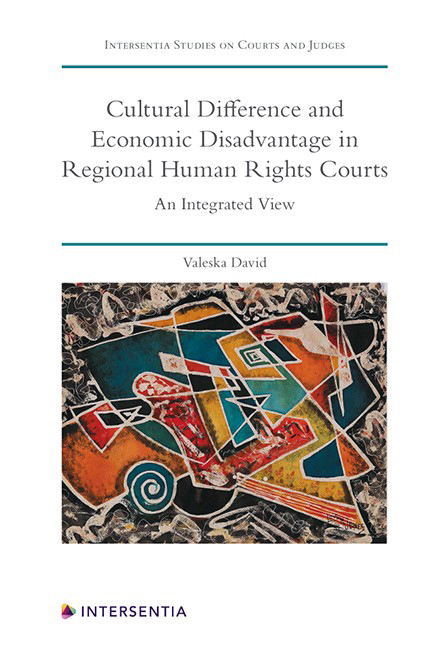Book contents
- Frontmatter
- Dedication
- Foreword
- Preface
- Acknowledgements
- Contents
- List of Cases
- Introduction
- PART I THEORETICAL FOUNDATIONS
- PART II RETHINKING CULTURAL DIFFERENCE FROM AN INTEGRATED PERSPECTIVE ON HUMAN RIGHTS
- PART III RETHINKING ECONOMIC DISADVANTAGE FROM AN INTEGRATED PERSPECTIVE ON HUMAN RIGHTS
- Conclusion
- Bibliography
- Index
- About the Author
Chapter 1 - A Conceptual and Normative Exploration
Published online by Cambridge University Press: 21 July 2020
- Frontmatter
- Dedication
- Foreword
- Preface
- Acknowledgements
- Contents
- List of Cases
- Introduction
- PART I THEORETICAL FOUNDATIONS
- PART II RETHINKING CULTURAL DIFFERENCE FROM AN INTEGRATED PERSPECTIVE ON HUMAN RIGHTS
- PART III RETHINKING ECONOMIC DISADVANTAGE FROM AN INTEGRATED PERSPECTIVE ON HUMAN RIGHTS
- Conclusion
- Bibliography
- Index
- About the Author
Summary
Human Rights are better approached and defended in an integrated rather than a
disparate fashion. The rights must fit the people, not the people the rights. Th is requires
looking at rights and their violations from a person-centred rather than a formula-based
position, and analyzing them contextually rather than abstractly.
Albie SachsClearly, our curiosity is selective and, obviously, this selection is political. Th e way we
frame the problem and think about the law protects the dominant beliefs or practices
that conform with them, the norm …. Who or what kind of human rights
do we thus see and which rights are obscured ?
Susanne BaerINTRODUCTION: EMBEDDED DIFFERENCES AND SOCIAL EXCLUSION
It is clear that we inhabit a world of differences. We are crossed by and live among distinct identities and cultural values, as our societies are more plural than ever. Furthermore, social inequality divides us across and within regions, since the world never had so much wealth concentrated in so few hands.We are increasingly aware of our differences in terms of religion, ethnicity, culture, sexual and gender identity, body-ability and economic resources, among many others. Globalisation processes characterised by (neo)liberalisation trends and increased flows of ideas and persons are some of the factors which have rendered liberal democracies more diverse or have made diversity more visible. Either way, both cultural and socio-economic disparities have widened. What is more, many claim that being singled out as different and having their difference overlooked both have the effect of excluding them from the socio-economic, cultural and political life of their communities. These claims have, for a while already, been expressed as issues of difference, identity and human rights. As such, they have reached not only domestic courts and political bodies, but also international human rights courts. The European Court of Human Rights (ECtHR) and the Inter-American Court of Human Rights (IACtHR) both have to deal with a growing number of such legal claims.
The above has taken place against the background of decades during which the language of difference and diversity gained currency while multiculturalism was widely embraced in Europe and the Americas. More recently, however, the general context is also one of retreat.
- Type
- Chapter
- Information
- Cultural Difference and Economic Disadvantage in Regional Human Rights CourtsAn Integrated View, pp. 17 - 88Publisher: IntersentiaPrint publication year: 2020



